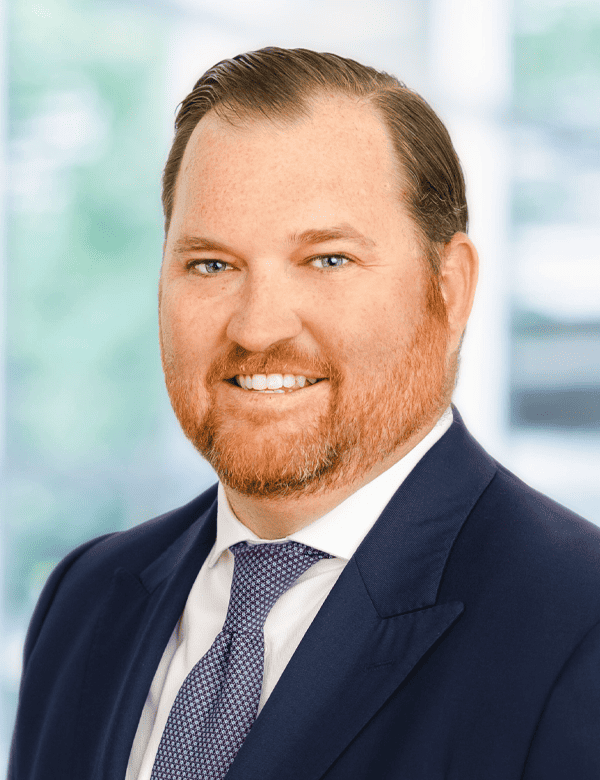This article provides an overview of recent private equity activity in the golf course market and explores a range of evolving factors that are likely to impact the flow of transactions and development plans in the year ahead.
PE BACK IN THE GAME
Private equity firms have unmistakably recognized the resurgence of golf’s popularity over the past few years, actively intensifying their presence in the market. As we explored in detail within our previous golf industry article this past summer, these astute investors have been channeling substantial funds into the golf industry, presenting new exit opportunities for course owners looking to unlock the value of their investments.
PRIVATE CLUB EXPLOSION IN THE SOUTHEAST
Developers and buyers are getting more and more creative to expand their foothold in the private golf market. Land naturally suited to course development is hard to come by. But the rewards for both those who build them and those who can afford the skyrocketing membership fees (some doubling or tripling since the start of the pandemic) and dues (becoming burdensome or out of reach for many current members), new and upgraded offerings are something to behold.
Florida
South Florida is undergoing an unprecedented private course development boon, focused largely in Martin County just north of Jupiter, where a number of private courses are either under construction or in planning stages. For starters, The Ranch is being developed by Baskt and The Apogee Club by Michael Pascucci and Stephen Ross. Then there’s Atlantic Fields by Discovery Land Company, Rolling Sands by Shumway Capital and Panther National by Dominik Senn. The latter being the sole new effort located further south in Palm Beach County. Other courses, such as McArthur Golf Club in Hobe Sound, are adding new courses to their existing offerings. When you tally it all up, there will likely be more than 162 new private golf holes, excluding those par-3 and practice course offerings now in the works, available across south Florida within the next few years.
Unlike Sand Valley and Streamsong before them, these course sites were not selected based on their beauty or physical land characteristics that make them ideally suited to development. Instead, they have been strategically selected largely for their geographical proximity to affluence and current private course membership demand. What these parcels lack in natural attributes, however, their developers are prepared to make up by bringing in the best course architects in the business including Coore and Crenshaw, Nicklaus Design, Tom Doak, Tom Fazio, Kyle Phillips, Hanse and Wagner, Tommy Fazio and Mike Davis.
We would also be remiss if we did not mention the most outrageous new, private course to come online in South Florida this year. Shell Bay Club, located in Hallandale Beach features a high-end private club with an 18-hole private course, racquet center, fitness centers and yacht club. Designed by Greg Norman, it is the first new course to be built in the last 25 years in Miami. The initiation fee? A mere $1 million.
Carolinas
Course architect Lester George has teamed with Course developer Landscapes Unlimited to bring Contentment Golf Club to the foothills of the Blue Ridge Mountains about
an hour from Winston Salem, North Carolina. The New, 800-acre private golf course community currently under construction will feature an 18-hole, championship golf course, clubhouse and amenities. No homes will be built on the property, thereby preserving its natural characteristics but exclusive cottages and lodging for members and their families will be a unique feature of the development.
Georgia
New property suitable for private course development has been hard to come by in Georgia. Heritage Golf’s purchase of Club at Savannah Quarters, a private golf club located within a residential community just south of Savannah, Georgia, is part of the company’s focus on owning and operating private clubs in residential communities. The course is an 18-hole Greg Norman design that weaves through lagoons, natural areas and groves.
Located on the border of Georgia and Florida the private Dye Course at White Oak is one of the most exclusive golf courses to be built in recent years. Located in a naturally isolated area and part of a world-class retreat currently under development, it has no on-site clubhouse or any other structures on or near the course. Reportedly, hardly anyone has played this private gem that was the last project that Pete Dye took on before his death.
INVESTMENT FROM FOREIGN INVESTORS AND CELEBRITIES
Panther National, which we touched on above in our summary of Florida private course growth, just opened in November 2023. In addition to course designer Jack Nicklaus, fellow designer, investor and PGA Tour professional Justin Tomas was in attendance at the opening, hitting an opening drive along with Nicklaus on the first tee. The course was developed by former professional ski racer and founder/president of 4Sports & Entertainment management, Dominick Senn. As a European alpine skier, his vision for the course was more along the lines of the Streamsong/Sand Valley model, leveraging existing topography and design elements to create dramatic and challenging hole layouts. Private membership is by invitation only and while the cost to join is significant, insiders say demand already outstrips supply.
Celebrities like Justin Timberlake, a partner and investor in 8am Golf, the parent company of Golf Magazine, are getting in on the action as well. 8am is the owner of the Nicklaus Companies, the 3’s (par three courses and putting golf-tainment facilities) and various other golf equipment, fitting, technology and entertainment businesses. Most recently, Timberlake has partnered with Tiger Woods to open T-Squared Social Club, a golfer’s dream bar in Manhattan, featuring New York City’s largest indoor television.

RESORT EXPANSION
A number of exciting projects are planned, underway or nearing completion across the country right now, and the timing could not be better given the demand for destination course play.
Pinehurst #10
16 months after construction began at the start of 2023, the first original golf course that Pinehurst Resort has unveiled in almost 30 years will debut in April of 2024. The course has been in the works far longer, however, as the family that owns Pinehurst Resort purchased land of the former 925-acre Pit Golf Links in 2011 from a buyer who had acquired it in a foreclosure sale. That land was strategically adjacent to an additional 250 acres the family had purchased years earlier in 1999. Designed by Tom Doak, the resulting #10 course features generous sandscape, native wiregrass, longleaf pines and seemingly endless rolling hills amid rugged dunes and 75 feet of elevation change.
The Lido at Sand Valley
The new Lido course, located within the Sand Valley Resort in Wisconsin, opened this past summer after having been one of the most widely anticipated course debuts in recent memory. The course was designed as a highly precise replica of the famed Lido Club course originally built on Long Island in 1917 but later demolished by the U.S. Navy during the Great Depression for conversion to a naval air station. The new Wisconsin incarnation, bankrolled by Mike Keiser (developer of Bandon Dunes) and his brother Chris, and overseen by none other than Tom Doak, remains beyond faithful to original architect C.B. Macdonald’s design vision. The course is currently open exclusively to Sand Valley resort guests.
Palmetto Bluff
Located directly west of Hilton Head Island in South Carolina, the new and innovative reversible nine hole course designed and now being built by King-Collins will be approximately 3,100 yards when completed. An 18-hole layout at Palmetto Bluff by Coore and Crenshaw is currently progressing through planning.
Streamsong
Noted for its stunning scenery, secluded location three incredible 18-hole layouts, Streamsong debuted in 2013 with designs from Coore & Crenshaw (Red), Tom Doak (Blue) and Gil Hanse (Black). In 2023, Mosaic Golf sold the elite resort to Kemper Sports Management for $160 million. Each course is ranked among the Top 50 in the U.S., making Streamsong the only facility in the world to have achieved that unique distinction.
DAILY FEE STALEMATE
Even as incredible growth and innovation continues in private and resort course development, the struggle for both buyers and sellers of daily fee facilities is palpable right now. With a combination of rounds played, the number of new golfers entering the market and strong revenue still driving impressive public course performance, potential acquirers with a vision for properties in their sights are being met by owners that are placing an often unrealistically high premium on those properties. Market analysts are paying close attention to see which side will blink first in the year ahead and what precedent that will set for future transaction value and volume.
2024 OUTLOOK & CONSIDERATIONS
Continued Tenuous Financing
With bankruptcies continuing to rise in the wake of what has largely been a range of lagging pandemic fallout and banks preparing for the associated remote work-driven commercial real estate crisis, traditional lending has all but dried up for golf transactions. Interest rates may now be moderating but even at current levels on Mezzanine and Construction debt, ground-up projects are looking less and less feasible. From the recent outbreak of the Israel-Hamas war to the continuing Russia-Ukraine war and the ongoing Taiwan-China Dispute, global conflicts can be expected to add to the uncertainty and instability in lending during 2024.

More Resort and Hospitality Growth
Resort and Hospitality is the only sector where we see a near-certain continued appetite for growth in the year ahead. Additional projects validating this that are now in the works or recently completed include Cabot Citrus Farms in central-west Florida, Cabot St. Lucia on the island of St. Lucia and the first of a potential six courses at Keiser brothers’ Rodeo Dunes, located less than an hour’s drive outside of downtown Denver.
A Private Course Bubble Pop Ahead?
The question of when private course supply will outpace demand remains. Of greatest concern are some of the drivers which could derail both new and existing membership. These include unprecedented membership initiation increases and the shift to limited or no equity repayment when members depart, along with significant and ongoing increases in monthly dues that have become difficult for some existing members (particularly retirees, and others with limited income sources) as well as those considering new memberships alongside costly mortgage payments in the current high rate environment.
Conditions May be Ripe for Daily Fee Course Repositioning
With institutional groups now facing a short supply of private clubs available for acquisition, mid-to-high level daily fee courses remain ripe targets for purchase and repositioning to private membership facilities. Motivated buyers may start sweetening the pot, enticing course sellers eager to monetize their investments to meet them somewhere in the middle, leading to more transactions in the year ahead.
Our Golf Advisory team assists course and other property owners, as well as PE clients, to traverse challenging transitions, transactions, and navigate complex market environments. Successfully positioning these real estate holdings within a company’s portfolio is a material component of establishing and maintaining a strong financial foundation for long-term success. We expertly advise and execute strategies for clients seeking to optimize their real estate assets, improve cash flow, maximize asset value, and minimize liabilities and portfolio risk. Our ongoing engagements and frequent interactions with industry partners and contacts provide us with invaluable insight into the industry that we welcome the opportunity to share with your organization. We encourage you to reach out to our experienced team today to discuss a current project or situation. We are here to help.



